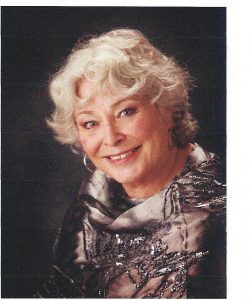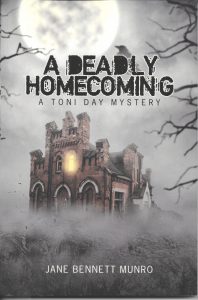Medical practice, particularly pathology practice, is rife with jargon. I can’t not use it; that would destroy the authenticity. I don’t want to dumb it down; that would be patronizing. I don’t want it to be a lecture; that would put readers to sleep.
While I was married, I frequently had to explain things to my husband. He was a medical technologist, as was I, when we first met. Later he became a histotech and worked for me. Many times I assumed he would know things because we worked so closely together, and would be surprised when it turned out he didn’t. Unfortunately, working together wasn’t a good idea and we ended up divorcing after thirty years.
So in my Toni Day mysteries, I have Toni explain things to her husband, Hal, or to her mother, or friends, employees, and other doctors. I have them ask appropriate questions that Toni can answer, so instead of a lecture, it’s just dialogue.
Now, with regard to those who are squeamish; how do I present forensic details in a way that won’t make them sick? I don’t. By their very nature, murder scenes and autopsies have a certain ick factor that can’t be denied. It would destroy authenticity. Toni isn’t squeamish. She couldn’t be a pathologist if she were. It would be out of character for her to sugarcoat the gory details.
I’d be lying if I said nobody has ever complained. Of course I’ve had complaints. One of my friends said after reading Too Much Blood that she was shocked to be plunged right into a “full-on autopsy” in the first chapter. But it didn’t stop her from finishing the book and buying all the rest of them.
My hairdresser was so turned off by my description of the body that went splat! on the Lido Deck that she stopped reading and put the book aside for six months before she could go back and read the rest of it. But she did finish it, as well as all my other books, and loans them to her friends. Now her big complaint is that she never gets them back.
I did an interview back in 2012 for the early morning show on our local TV station, after the publication of my first book, Murder under the Microscope, and we got onto the subject of why people think all pathologists do is autopsies. I explained that nowadays most pathologists do very few autopsies unless they are medical examiners. One has to be board-certified in forensic pathology which requires an extra year of residency, and one has to work in a large city to make a living at it. Our coroner’s cases go to Boise.
Hospital autopsies have become vanishingly rare now because of imaging techniques that allow radiologists to see everything and stick a needle in it for a biopsy. I read an article in a journal recently that said autopsies were now so rare that residency programs are obliged to use “virtual autopsies” for teaching purposes.
Hospital-based pathologists like me and Toni Day spend the bulk of their time on surgical specimens. They also review all the abnormal Pap smears, and they do all the non-gynecologic cytology, as well as bone marrows, fine needle aspirations, and of course running the lab. They work closely with radiologists, surgeons, and oncologists (the cancer doctors) and other doctors with questions about lab results that they don’t understand, or don’t know exactly which tests they should order.
But, as I explained to my interviewers, Nick and Danielle, all that would look very boring if it was in a movie. Unless, of course, I went into the histology lab and there was, like, a big juicy colon… Nick and Danielle went “Whoa! I hope nobody’s eating breakfast right now!”
Oops.
Rhonda had recorded my interview on the DVR and we watched it together when I got home. After the interview was over and I had left, Nick turned to Danielle and said, “That was probably the first time the words ‘big juicy colon’ have been spoken on television.”
But it wasn’t the last. Nick and Danielle interviewed me two more times, after Too Much Blood and Grievous Bodily Harm came out, and they brought up the saga of the “big juicy colon” during the interview both times. Then they moved to the east coast, and subsequent interviews weren’t nearly so much fun.
Now, everybody I tell this story to finds it hilarious. As one of my fellow residents said as I was grossing a particularly weepy malodorous leg amputation for gangrene, “They don’t call it ‘gross’ pathology for nothing!”
Gross can be fun.
 Jane Bennett Munro has been a hospital-based pathologist for 40 years, incorporating her medical and forensic knowledge to give her books a realistic and riveting feel. Her novel, “Murder Under the Microscope,” received a 2012 IPPY Award. Her novel “Too Much Blood” won a 2014 Feathered Quill Award. She is also the author of “Grievous Bodily Harm,” Death by Autopsy,” and “Body on the Lido Deck.” Munro is semiretired, and lives and writes in Twin Falls, Idaho.
Jane Bennett Munro has been a hospital-based pathologist for 40 years, incorporating her medical and forensic knowledge to give her books a realistic and riveting feel. Her novel, “Murder Under the Microscope,” received a 2012 IPPY Award. Her novel “Too Much Blood” won a 2014 Feathered Quill Award. She is also the author of “Grievous Bodily Harm,” Death by Autopsy,” and “Body on the Lido Deck.” Munro is semiretired, and lives and writes in Twin Falls, Idaho.
The newest book in her series, “A Deadly Homecoming,” takes Toni on a trip from Twin Falls, ID, back to her hometown of Long Beach, CA, to investigate the sudden disappearance of a dearly family friend, Doris’s, husband. At the same time, Doris is dealing with a mysterious illness that sends her into a coma. With the help of her mother, step-father, husband, Toni begins to piece together this complex case, while also uncovering clues that leaves her own life at risk.
Purchase on Amazon
A Pathologist on Presenting Forensic Details to Readers: Share on XPhoto on Visualhunt.com


I imagine that was the first time those words had been uttered on television! Funny. Hey, just tell people science isn’t pretty.
I always admire people who aren’t squeamish! I wish that I was one of them, ha! Thanks for the post, Jane. :)
There really is a fine line between being authentic (a forensics expert sees a lot of things that would make a squeamish person run in the opposite direction) and keeping readers engaged. It’s a delicate balance, and it’s interesting to see how different writers achieve it. Thanks for your thoughts.
It would be hard to get the right balance between enough details for the mystery and not too much gore. Thanks for sharing your thoughts on how to do it. And congrats on your book.
I might faint if I had to see a big squishy colon. LOL. But I do still enjoy gallows humor! Very interesting post, thank you!
I learned so much! I didn’t realize the parameters of the job – very interesting!
Big juicy colon made me smile!
Hi Elizabeth and Jane – loved this interview … and I enjoy these sorts of books and programmes – and learning more … I’m sure I’d cope now in real life and expect I would have back then … but some are primed to dislike gore. Mind over matter … but I’m happier with a book – and someone else doing the work … your books sound really interesting – cheers Hilary
Great article. I love this series. I am very squeamish, but I was able to read your books. I love how everything was explained in your books.